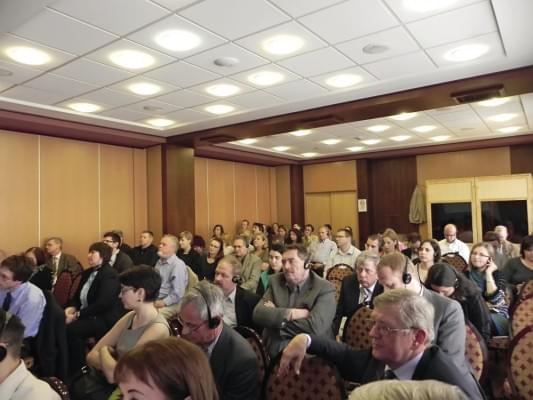Magazine: New packaging recycling and re-use objectives in the EU
RECOMPLEX Association held its ‘Which way to go in manufacturer responsibility?’ conference on 1 April 2014, to call the trade’s attention to the European Union’s revision of the Packaging and Packaging Waste Directive (PPWD). The revised version will possibly given the green light in Brussels this year. At the conference the first speaker was Metal Packaging Europe managing director Joris Nachtergaele. He introduced the main directions of revision work in the European Commission.
It is rather probable that independent, third-party control will be introduced. EUROPEN managing director Virginia Janssens emphasised that manufacturers are supposed to adopting with a full life cycle approach. Her view is that measuring and reporting the volume of waste recycled and re-used needs to be done in a standardised procedure. The concept of Extended Producer Responsibility (EPR) must also be standardised in the EU. Joachim Quoden, managing director of EXPRA talked about the various models used in Europe. The majority of states (30) adopted an EPR-based coordination system: it is only in Denmark, Croatia and Hungary that there is only packaging tax and no EPR organisation. Nedvang secretary Paul Christiaens spoke about the Dutch system, where the extended producer responsibility system was introduced in 2006 with many coordinators, but in 2008 the government imposed a packaging tax and only one coordinating organisation was left. This system worked well but the administrative burden was too big so in 2013 the Netherlands returned to the EPR system. Oszkár Vámosi, the managing director of the National Waste Management Agency highlighted in his presentation that by revising the product fee they established a one-stop-shop system, in which producer responsibility prevails through the payment of the product fee. One of the change’s main goals was cutting down on red tape and acquiring more transparent and controllable data. Miklós Galli, vice president of the Confederation of Hungarian Employers and Industrialists was of the opinion that as regards the subject of legislation it would be useful to return from packaging material to packaging. He added that the principle of manufacturer responsibility should always prevail in Hungary too, in harmony with the EU directive in effect. Eszter Sárosi, managing director of the National Association of Recyclers criticised the constantly changing legislative background. She thinks that more professionalism, well-working authorities and less administration would result in progress in the industry. ÖKO-Pannon Nonprofit Kft.’s managing director György Viszkei believes that both from an environmental and an economic perspective the classic EPR model is the most efficient – ÖKO-Pannon managed this model with great results for 9 years. Unfortunately from 2012 the packaging-related burdens of businesses doubled, while the National Waste Management Agency spends less on collecting and recycling packaging waste year after year. György Nagy, director of the Public Sanitary Association underlined the fact that the government’s cutting utility cost, the disposal duty and the supervision fee led to the sector generating loss. As a result of this, there won’t be investments and the infrastructure will deteriorate. Szilárd Gyenes, managing director of Zöld-Híd Régió Kft. also mentioned growing administrative burden and operating costs, adding that the National Waste Management Agency’s accounting and reporting system is too complicated.
Related news
Related news
They want it to be premium, but also sustainable – expectations of the youngest generation
GlobalData’s latest report, “Demographics in Retail and Apparel” – which…
Read more >Zsolt Liptai became the winemaker of the year
The Hungarian Wine Academy (MBA) has awarded Zsolt Liptai, the…
Read more >Tips for avoiding credit card fraud during the holiday season
The Christmas season is all about the joy of shopping,…
Read more >





